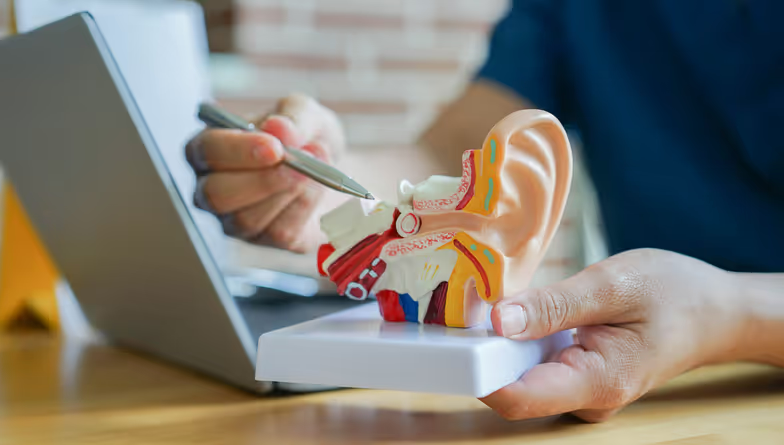Misinformation about hearing health can be as common as awareness. Since hearing loss can affect anyone at any age, understanding the truth about ear care is essential. In this article, we debunk common myths and set the record straight with facts.
Myth: Treat Ear Pain with Home Remedies > Fact: See a Health Professional
Ear pain can be a symptom of various underlying issues, including infections, blockages, or other serious conditions. Therefore, it's crucial to consult a health professional who can diagnose the underlying cause and recommend appropriate treatment to address the issue effectively.
Myth: Cotton Buds are Good for Ears > Fact: Cotton Buds are Not for Ears
It is a common misconception that cotton buds are a suitable tool for cleaning ears. However, health professionals advise against their use as they can actually push wax further into the ear canal, causing impaction and even damage to the ear drum. It's important to note that ears are self-cleaning organs, and the wax naturally produced serves to protect them.
Myth: Ear Discharge is a Small Inconvenience > Fact: Ear Discharge is an Urgent Problem
It's important to take any type of ear discharge seriously, as it could be a sign of an infection or a ruptured eardrum. Seeking prompt medical attention is necessary to prevent more severe health issues and to treat the underlying cause properly.
Myth: Ear Wax Needs to be Cleaned > Fact: Ears are Self-Cleaning
Many people believe that earwax is a sign of uncleanliness and needs to be removed. However, earwax actually plays a critical role in protecting the ear by trapping dust and debris, preventing them from reaching the inner ear. The ears have a natural mechanism for expelling excess wax. If wax buildup becomes a problem, it is recommended to consult a healthcare provider for safe removal options.
Here are several reputable resources where you can find comprehensive information about hearing loss and ear care:
- World Health Organization (WHO): Provides global information and resources for hearing care, focusing on prevention and management strategies for hearing loss. Their insights are particularly valuable for understanding hearing health on an international scale Deafness and hearing loss: Ear care.
- Centers for Disease Control and Prevention (CDC): The CDC provides comprehensive information on hearing health care, including prevention and data on noise-induced hearing loss. Their page also includes resources for various hearing loss conditions and protection guidelines CDC Hearing Health.
- Hearing Loss Association of America: This organization offers resources for both adults and children dealing with hearing loss, emphasizing the tools for self-help and community awareness Hearing Loss Association of America.
Are you interested in learning more about hearing care? If so, check out our recent blog post which highlights some user-friendly solutions that can make it easier for you to take care of your ears. You'll discover hearing test apps, sound level meter apps, and fashionable ear protection that can help you prevent any unnecessary complications. However, it is always recommended to consult a professional if you have any concerns about your hearing health.
